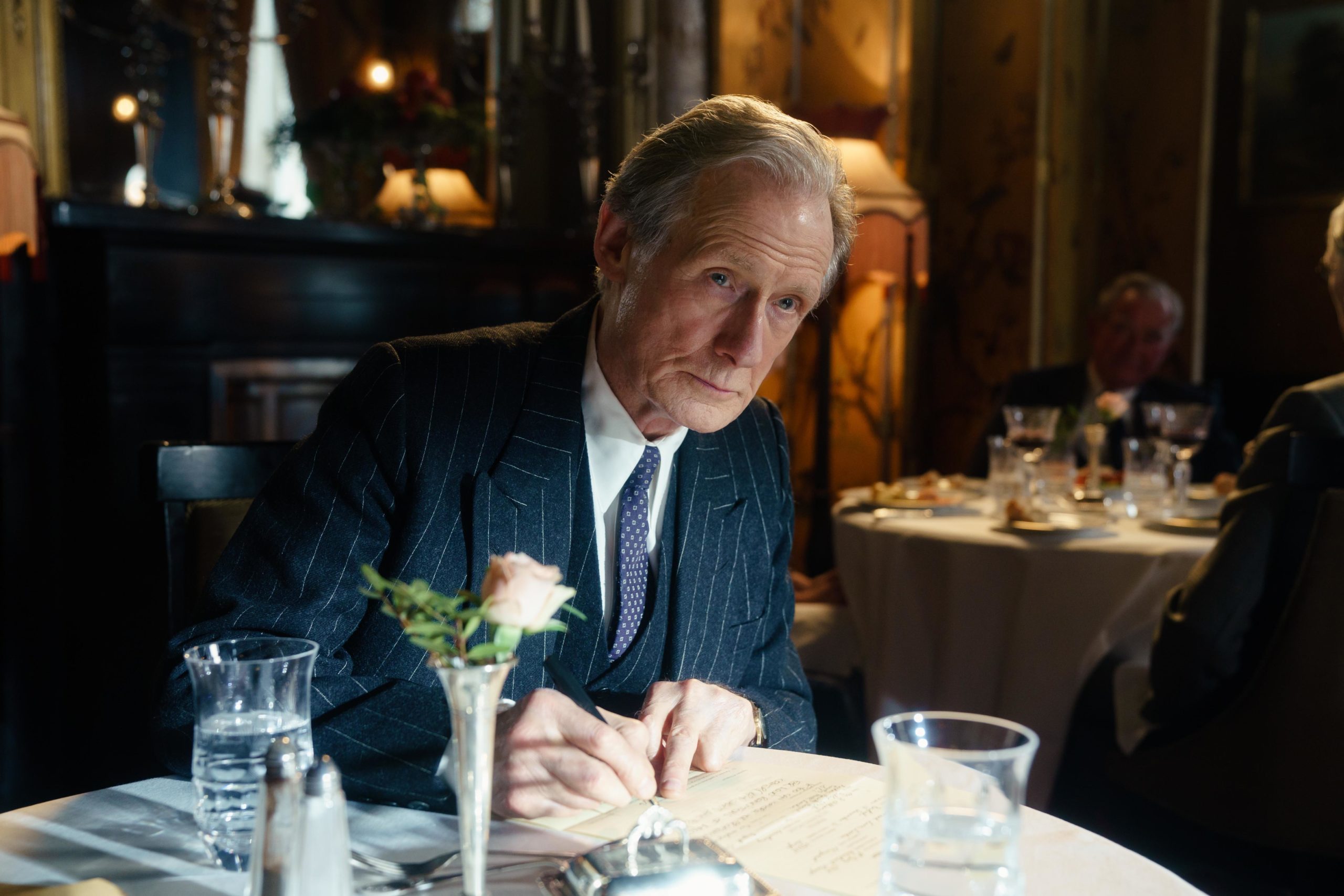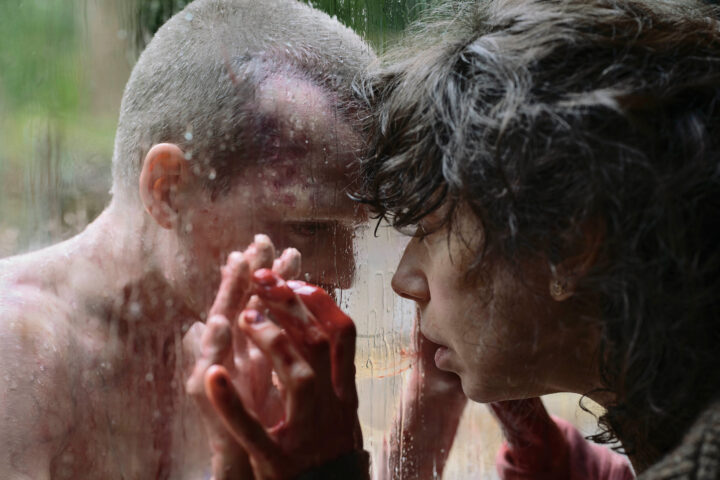I recently endured a milestone birthday which felt like a sort of dividing line—one of those everything before/after demarcations forcing, for perhaps the first time in my adult life, a realization of being “on the other side” of the proverbial hill. How to best “live in the moment” and “be present” in this now second part of life? What does it mean to make the most of each day? Can one make up for lost time?
Such melancholy ethos informs the precise, impeccably crafted Living, featuring a sterling Bill Nighy as a regimented London bureaucrat who only learns to live upon the late-life news that his day are, in fact, numbered. An understated update of Kurosawa’s 1952 masterpiece Ikiru (Japanese for “to live”), Living has been adroitly scripted by Nobel winner Kazuo Ishiguro, transporting the drama to postwar 1952 London while affording the seventy-two-year-old Nighy perhaps the richest character of his career.
A hushed, elegant study of a self-contained gentleman on a twilight excursion into the human condition, Nighy stars as the cooly detached septuagenarian Mr. Williams, supervisor to the London City Council’s public works department and a man of complete restraint; his reserved manner might be mistaken for imperious by his younger team of clerks, notably the impressionable, fledgling Mr. Wakeling (Alex Sharp).
A long widowed introvert and father to an adult son (Barney Fishwick) and daughter (Patsy Ferran) with whom he resides, the fastidious Mr. Williams runs a tight ship at the office, routinely bogging down citizen requests in red tape; he’s resigned to do as little as possible to make a difference for the city’s residents. While he may project a veneer of long-held professionalism, in truth he shirks making any difference to the city’s residents, stifled by decades of professional boredom which have bred withdrawal. His is the daily drudgery of a life half, or perhaps just a quarter, truly lived.
A marked shift pivots the picture when Mr. Williams is diagnosed with terminal stomach cancer and given mere months to live, forcing a sobering re-evaluation of priorities and engagement. Can Mr. Williams turn things around and create meaning in his little remaining time? Can any of us?
Try he will, and Living comes to life the moment its very civil servant sheds his mundane commitments to face his mortality–on his morning commute he skips his train stop and, to the confusion of his staff, does not show up at the office, only to land in Brighton (also the location of Sam Mendes’ Empire of Light) where he befriends a rakish young man played by the always interesting Tom Burke (The Souveneir), who takes him for a night on the town, one of drinks and music and color and poignant memory.
A chance public meeting with his spritely, soon-to-be-departing young assistant Margaret (the wonderful Aimee Lou Wood) leads to an unexpected connection, the pair dining out, taking in afternoon matinees at the cinema and, eventually, truth telling. Their platonic but substantive union is one of the film’s warmest flourishes.
Living is unquestionably the film and character Nighy has been waiting for across an estimable career that includes four decades of credits including the Royal National Theatre, television and high-profile commercial films from Notes on a Scandal, The Best Exotic Marigold Hotel, Pirates of the Caribbean and BAFTA-winning signature role as the ribald aging rocker in Richard Curtis’ beloved Love Actually, fully utilizing the actor’s unique, inspired vocal and physical eccentricities.
As Mr. Williams, he reaches deep inside for a contemplative stillness, a sort of richly thinking portrait that, with a lesser actor, might fail to register for the camera. But Nighy, with a gradually opening tenderness and sadness, holds every close-up in a performance worthy of its Oscar buzz; it may not be the most acting this year, but it could well be near the best.
Ishiguro has traveled this road in the past with his indelible novel The Remains of the Day, a spiritual cousin to Living and a much revered Merchant/Ivory film adaptation featuring Anthony Hopkins as the similarly restrained Mr. Stevens, a butler who, like his Mr. Williams, would find his orderly existence upended. Directed with burnished stateliness and intelligence by South African filmmaker Oliver Hermanus, Living isn’t perfect, and often feels a bit too measured for its own good. And Ishiguro takes a bold narrative leap in the final act that requires both patience and a perspective shift; it may not work in full and its abruptness feels questionable.
For a story with such an expansive theme–what one might reflect upon and course correct if the end was quickly approaching–Living sometimes feels slightly too economical and contained in execution, rather than universal or possessing an expected sweep.
Yet near the picture’s end, there is a subtle moment where an important urban project, one which Mr. Williams has devoted himself to during his final days, comes to fruition, leading to a two-character exchange both mournful and affirming. Nighy makes this and every minute of Living compelling, and he is the reason to see the film.
3 stars



